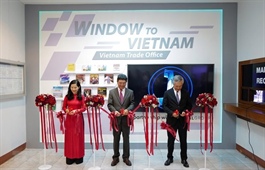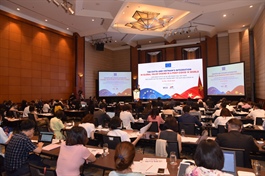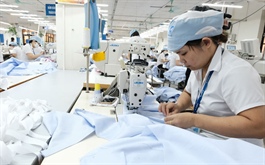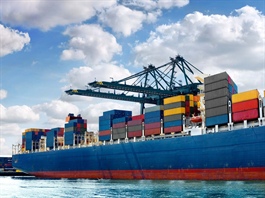Adapting Vietnamese firms to the new normal of international business
Adapting Vietnamese firms to the new normal of international business
Amidst the tumultuous difficulties and obstacles of the pandemic hitting the economy, businesses are doing their best to manage the challenges and look for some opportunities from free trade agreements and COVID-19.
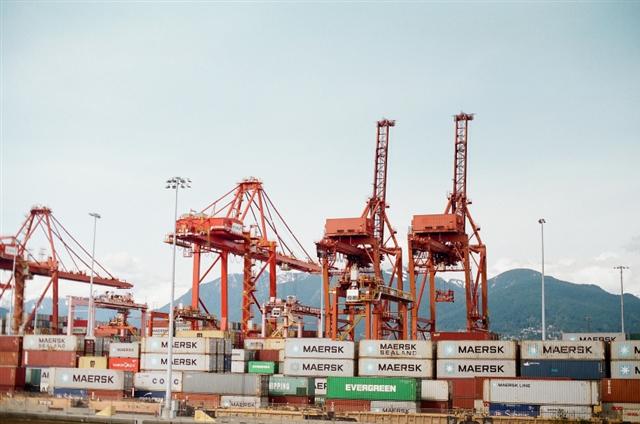
Vietnamese businesses are looking at wholly reformed rules for the game
|
Amidst the global recession caused by COVID-19, Vietnam continues to show signs of growth, with the World Bank’s latest report projecting Vietnam’s GDP to grow by 2.8 per cent this year if the global situation gradually improves.
This economic performance is remarkable in the global context, yet the business environment transformed by the pandemic and the new free trade agreement with the EU is also more complex than ever for Vietnamese firms to navigate.
At the recent International Business Forum 2020, experts from RMIT University, international law firm Allens, and the Prime Minister’s Economic Advisory Group discussed how Vietnamese firms will have to adapt to this new normal in order to become and remain successful.
Disrupted global trade and supply chains
Nguyen Quang Trung, management department head at RMIT University and organiser of the forum, highlighted the issue of supply and demand shocks.
“Wherever the virus hits in the world, millions of people have lost their jobs and thus have less money to spend, resulting in lower consumer demand around the world. This affects businesses of all kinds but poses a particular challenge to Vietnam as an open economy that is heavily reliant on external trade,” he said.
The RMIT academic said that operating with a prolonged lack of demand will drastically change the composition of trade and cross-border services.
A guest speaker at the forum, Professor Alberto Posso from RMIT’s Centre for International Development in Australia elaborated that trade disruption from COVID-19 is affecting both final and intermediate goods.
“Not all imports are final goods. In fact, about 70 per cent of imports globally are intermediate goods used in manufacturing. This means that global trade disruptions can make domestic production harder and more expensive,” he said.
Professor Posso presented a scenario for the new normal where a vaccine has become widely available and firms across the world are looking to re-establish pre-crisis patterns to an extent.
“Firms will be scared about new viruses or other factors that can disrupt supply chains, so they will try to diversify their supply chains," Professor Posso said. “As firms increase their supply sources, more economies will be able to find new export markets and growth opportunities, aiding in their recovery. Vietnam won’t be an exception.”
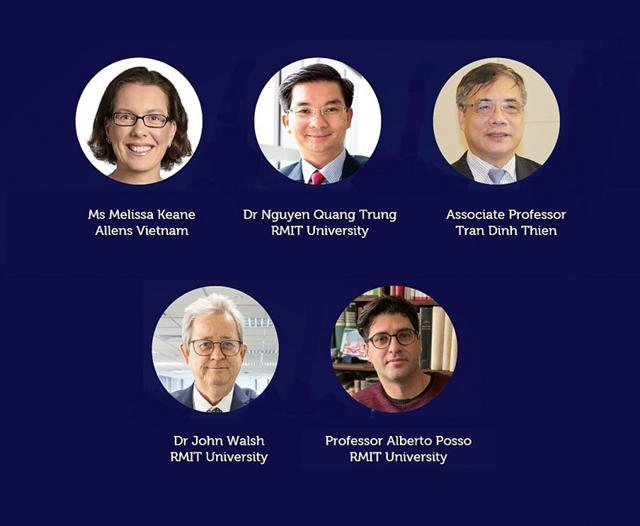
Speakers at the discussion
|
New opportunities with EVFTA and innovation
In keeping with the argument for supply chain diversification, RMIT experts hailed the EU-Vietnam Free Trade Agreement (EVFTA) as a source of new opportunities for Vietnamese firms in European markets and vice versa.
According to John Walsh, RMIT international business senior programme manager, “Vietnamese companies can potentially increase their exports to the EU and team up with European investors, thereby moving up the global value chains.”
“Local firms should expect a long and winding road ahead. They must be ready for opportunities to convert commodities into branded value-added products, and they might start approaching smaller EU markets first before penetrating big ones like Germany and France,” he added.
Meanwhile, forum keynote speaker and economic advisor to the prime minister Tran Dinh Thien said that post-COVID-19 Vietnam will call for a new generation of businesses with certain capabilities and mindsets.
Related to international business, he advises companies to actively look for opportunities in free trade agreements and shifting global value chains, and to embrace competition and high standards in foreign markets.
Associate Professor Thien also urges businesses to innovate with Industry 4.0, providing new solutions and products while building strong brands and practicing corporate social responsibility.
“Legal compliance and risk management are also important, as is the ability to raise capital in a complex financial system," he added. “Finally, businesses should become companions of the government in this journey. This means staying up to date with policies and engaging in dialogues.”










